Smart locks bring improved home protection and keyless home entry. Yet, their security is a big worry for homeowners. Many wonder if these intelligent locking systems are safe. In 2016, Merculite Security found at DEF CON that 75% of smart locks had hackable weaknesses.
Knowing how Consumer Reports checks smart locks helps you choose wisely. It’s key to regularly update your smart lock’s passwords. Plus, don’t share your passwords and always update the lock’s app.
Power outages can stop some smart locks from working. This can risk your home protection. Installation and buying cost more than regular locks, about $115 for the lock and $100 to $150 for professional installation. Homeowners should think about these pros and cons before getting smart locks.
Introduction to Smart Locks and Their Importance
Smart locks are changing home security with better features than old locks. They work as part of smart home gadgets. Without a key, these devices handle locking and unlocking, mixing security with ease.
What Are Smart Locks?
Smart locks let you open doors without keys. Use a smartphone app, a keycode, or your fingerprint. This is a big step in making homes safer and more hands-free. These locks fit into home systems, making everything safer and easier.
Benefits of Using Smart Locks in Your Home
Smart locks are mostly about making life easier. Imagine locking and unlocking doors from anywhere. This helps when you need to let guests in but you’re away. Some locks can even know when you’re coming home and adjust.
They also send news to your phone. So you know who’s coming and going. Brands like Schlage and Yale make them easy to set up. All you need is a screwdriver.
Why Homeowners Are Considering Smart Locks
People like smart locks for their top-notch security and easy use. They come with strong codes and alerts for tampering. They’re also good for the planet by cutting down on key use. And the market for them is growing fast.
Homeowners want these devices in their smart homes. They improve efficiency, safety, and simplicity. This shows a big move towards smart security solutions.
Types of Smart Locks Available for Homeowners
Smart locks are changing home security with different types available. Each type has its special features and benefits. It’s key to know which one meets your needs the most.
Best WiFi-Capable Smart Locks
Wi-Fi smart locks connect with your smart home for easy remote access. The Schlage Encode Smart Wi-Fi Deadbolt is top-rated for its quality and security. The Wyze Smart Lock is great for those on a budget and includes a Wi-Fi bridge. These locks let you manage your home’s security from anywhere.
Best Fingerprint Locks
Fingerprint locks add a layer of biometric security, making it tough for unwanted entry. They use your unique biometric data to let you in. Picking a fingerprint lock boosts your home’s security effectively.
Best Apple Home Key Locks
For Apple fans, Apple HomeKit locks are perfect. They work with your Apple devices, like your iPhone or Apple Watch. Schlage and August have models that work with Apple Home Key. These locks also work with Siri, making them a cool choice for Apple users.
Best Bluetooth-Only Smart Locks
If you don’t need to access your lock remotely, Bluetooth is the way to go. These locks work with Bluetooth-enabled devices. The August Home Smart Lock Pro + Connect is versatile, easy to use, and enhances daily security.
Best Retrofit Smart Locks
Want to keep your current locks but add smart features? Retrofit smart locks are your answer. They upgrade your existing locks without a full replacement. August and Yale are popular for their security features and easy setup. They bring modern security while keeping your door’s look.
Finding the right smart lock depends on your needs, home system compatibility, and budget. For info on smart lock setup and tips, check out this guide for Toronto residents.
Evaluating the Security Features of Smart Locks
As a homeowner, making sure your smart lock is secure is important. Smart locks use different ways to let you in, like keycodes, fingerprints, and your phone. These methods aim to improve security.
Authentication Methods: Keycodes, Biometric, and Smartphone Access
Smart locks offer choices from keycodes to fingerprint sensors. For example, Lockly can save up to 99 fingerprints. This feature gives you many secure ways to access your home.
Remote Access and Monitoring Capabilities
Remote access lets you control your lock from anywhere. You can also monitor your lock through apps, getting updates in real time. For instance, the Lockly Secure Plus offers these features through its app.
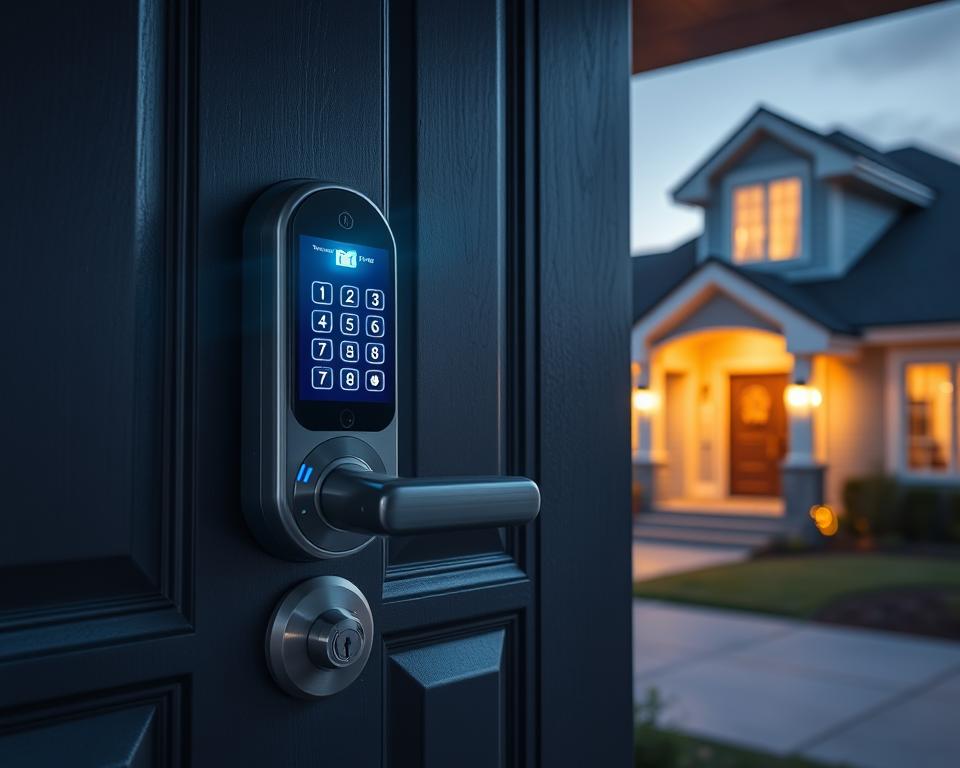
Geofencing and Automated Locking/Unlocking
With geofencing, smart locks can lock and unlock by themselves when you come and go. This makes sure your home is secure without you having to do anything. It’s both handy and safe.
Tamper Alarms and Access Logs
For added security, many smart locks have alarms and access logs. These tell you if someone tried to break in and track who enters your home. It’s an extra way to keep your home safe.
Backup Entry Options: Traditional Keys and Entry Codes
Having a backup way to get in is also key. Most smart locks have a keyhole and codes just in case. This means you can always get into your home, even if the smart lock stops working. Lockly Vision™ has these backup options.
Potential Vulnerabilities and Risks of Smart Locks
Smart locks change how we protect our homes. They let you in without a key, can be controlled from anywhere, and work with home automation. But, they come with problems. Even with strong security in place, hackers can target them through their wireless and internet connections.
Hacking Concerns and Case Studies
Hackers have targeted smart locks, especially Bluetooth ones, in various cases. These weaknesses can lead to unwanted entries, raising big security worries. One notable example is Chirp Systems. They had a high-risk security flaw that affected thousands. It took three years to fix, showing the need for secure and dependable locks.
Bluetooth and Wi-Fi Security Vulnerabilities
Smart locks with Bluetooth and Wi-Fi face cyber threats. Weak encryption can leave Bluetooth locks open to attacks. Wi-Fi locks are generally safer but not invincible. There have been cases where even these locks were hacked, proving that every system has its flaws.
Possible Malfunctions and Power Failures
Like any tech, smart locks can fail. Bugs, breakdowns, or dead batteries can lock you out. Different brands have various rates of these issues. It’s important to pick reliable ones. Also, power outages can shut them down. Make sure you have a backup plan, like keys or codes, to keep your home safe.
To lower these risks, update your smart lock’s software regularly. Choose strong passwords and locks with extra security. Being aware of smart lock risks is key to a secure smart home.
Smart Locks Installation and Maintenance Tips
Installing smart locks boosts your home’s security and ease. We’ll guide you in picking the right smart lock, installing it properly, and maintaining it for long-lasting use.
Choosing the Right Smart Lock for Your Door Type
Door compatibility is key when choosing a smart lock. Different doors, like wood, metal, and uPVC, need various lock types. Mortise locks work well in high-end places because they’re strong. Single latch or deadbolt locks are easier to set up and are common in homes. If you can’t cut into your door, rim locks are a good choice, especially for older houses.
DIY Installation vs. Professional Installation
DIY might tempt you, but some smart locks demand a professional locksmith service. Special doors, such as aluminum or rebated ones, require more knowledge to handle. In big cities like Toronto, Canada, pros are available for safe and correct installations.
Maintenance Practices to Ensure Longevity and Safety
Keeping smart locks in shape is vital. Check them often for damage or wear. Change batteries in battery-powered locks before they die. Clean the mechanism and ensure it’s aligned for the best function. Watching how they connect and perform software-wise is key for quick fixes.
Regular Password and Firmware Updates
Change passwords and update smart lock firmware often to stay safe. Firmware updates bring new security updates and bug fixes. Staying up-to-date helps prevent hacking and technical problems.
Follow these tips for smart lock installation and care to boost your home’s security. Your smart locks will last longer and work better.
Conclusion
Smart home tech is key in today’s homes. Choosing the right smart lock is vital for your security. These locks offer keyless entry and remote control. But, it’s key to consider security risks too. Look for locks with encryption, two-factor authentication, and recent firmware for better security.
Smart locks usually last about five years. They need regular checks and updates to work well. Many can be installed by homeowners themselves. Yet, some might prefer hiring a professional for extra assurance. Whether you want a simple add-on like the August Smart Lock or a full replacement, make sure it fits your home and needs.
In Toronto, smart locks do more than keep you safe. They could also up your home’s value and lower insurance costs. For all you need to know about these systems, check out this detailed guide. Being informed and taking care of your smart lock can make it a solid part of your security. This effort makes smart locks a smart choice for your home.
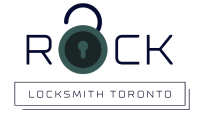
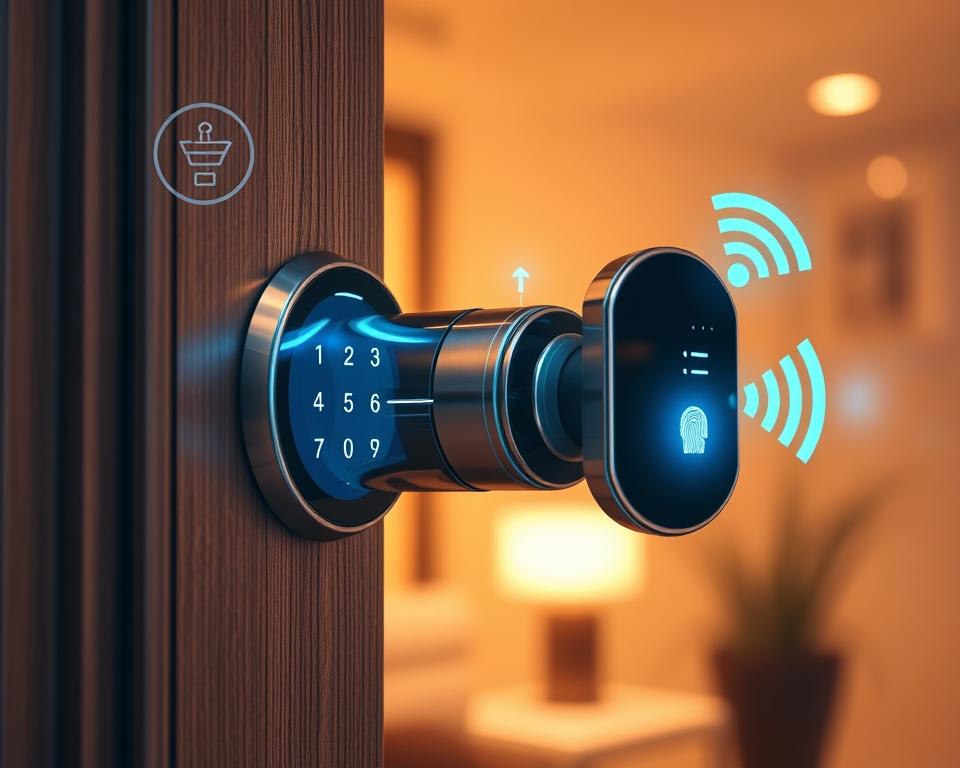
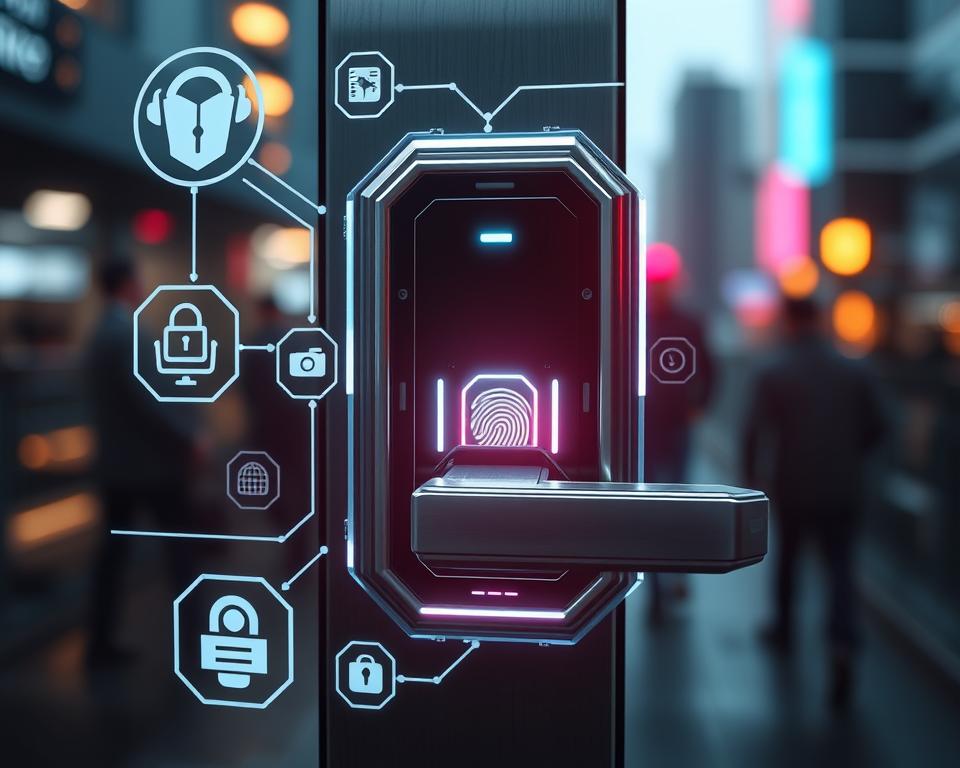
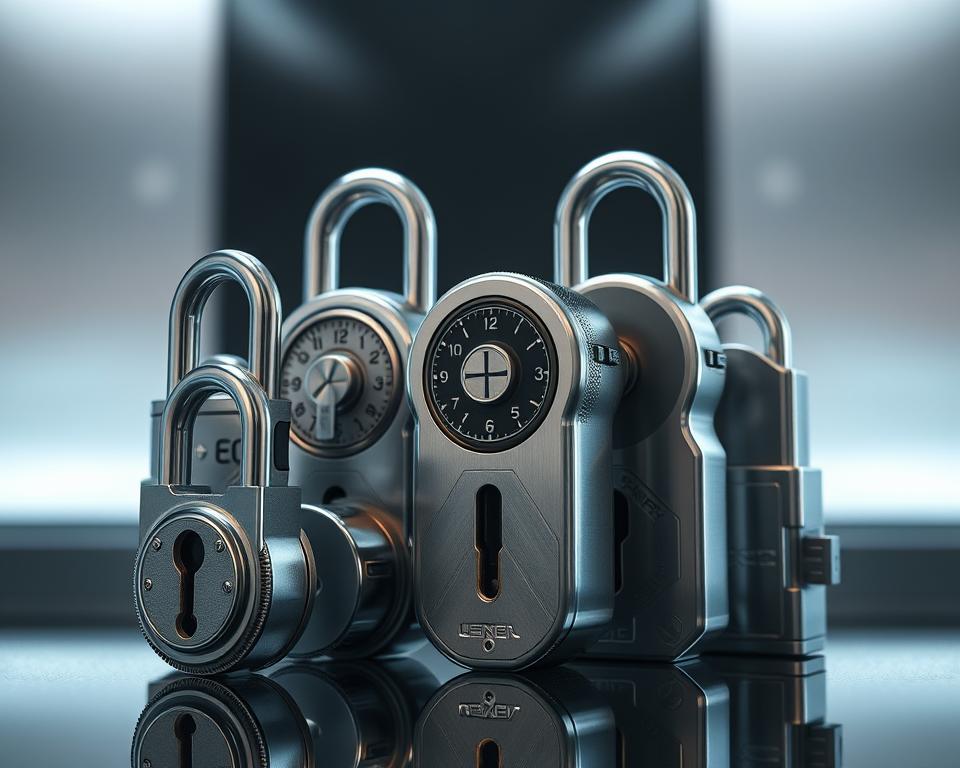
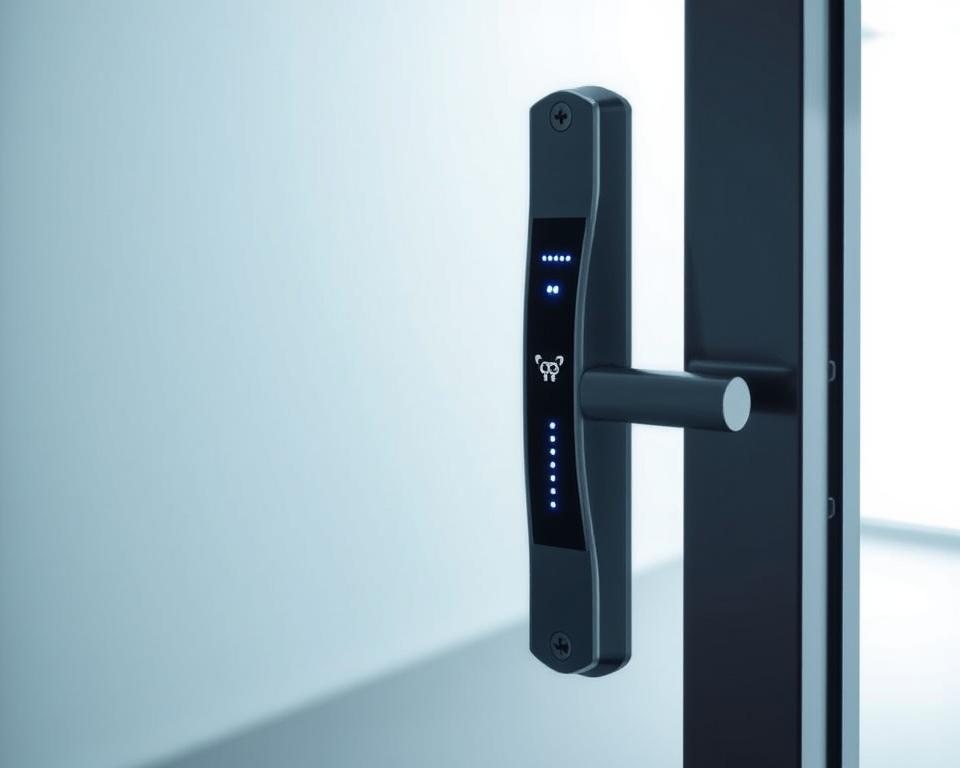
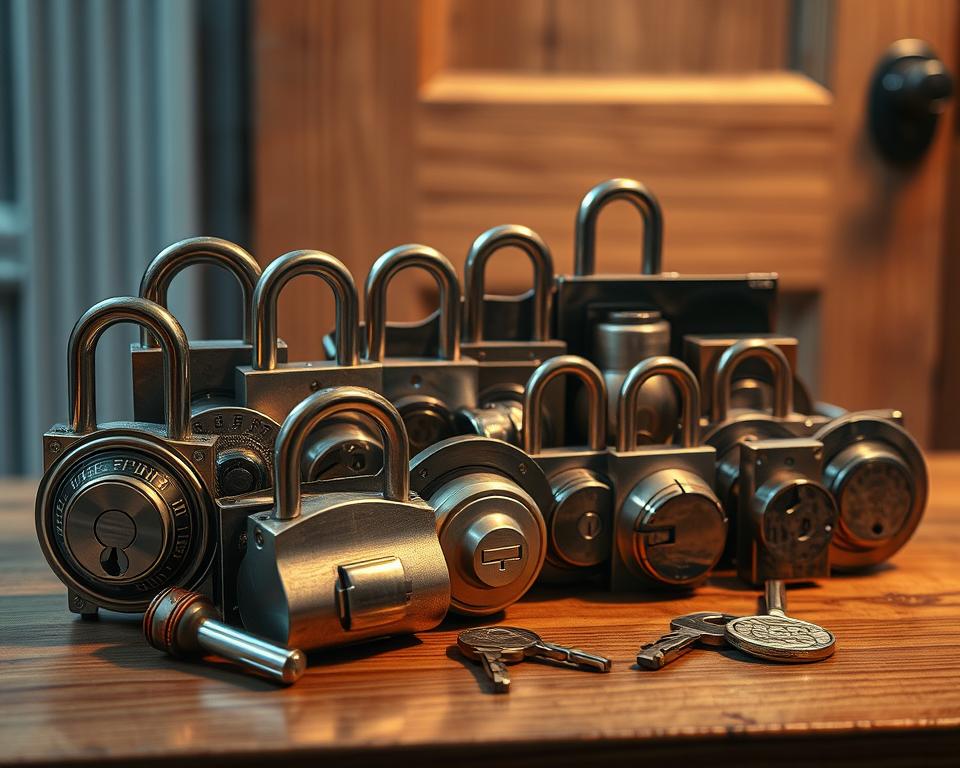
Recent Comments